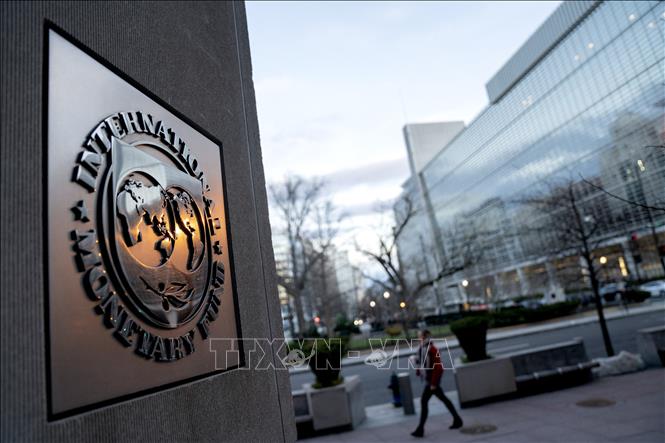On July 25, the International Monetary Fund (IMF) slightly increased its forecast for global economic growth this year thanks to positive economic activity in the first quarter.

In its latest World Economic Outlook report, the IMF expects global economic growth to reach 3% in 2023, up 0.2 percentage points from its April forecast. However, the IMF kept its forecast for global economic growth unchanged at 3% in 2024 due to a slowdown in advanced economies. These growth rates are lower than the 6.3% growth achieved in 2021 and 3.5% in 2022.
The forecast is based on the recovery of the service sector after the COVID-19 pandemic thanks to countries stepping up tourism activities. The organization also said that the global economic outlook has improved thanks to the US partly solving the problem of the public debt ceiling and easing concerns about the crisis in the banking sector. However, the organization also warned that the global economy is still facing long-term challenges despite the "resilience in the short term", noting that countries should maintain tight monetary policies.
In the report, the IMF also raised its forecast for US economic growth in 2023 to 1.8%, up 0.2 percentage points from its April forecast, thanks to strong consumer spending in the first quarter of this year. The IMF said the labor market remained strong in the world's largest economy, contributing to rising real incomes and vehicle sales. However, the US economy is forecast to contract by 1% in 2024, as savings accumulated during the pandemic run out and the economy loses momentum.
Similar to the forecast made in April, emerging market and developing economies (EMDEs) will be the main drivers of global growth this year, while growth in developed economies is forecast to slow significantly this year and next. Specifically, according to the IMF report, economic growth in EMDEs is likely to reach 4% this year and 4.1% next year. The IMF also maintained its forecast for China's economic growth to reach 5.2% in 2023.
Meanwhile, the IMF raised its growth outlook for India to 6.1%, up 0.2 percentage points from its previous forecast, citing “higher-than-expected growth momentum in the fourth quarter of 2022 due to stronger domestic investment.” Russia’s economy is now forecast to grow 1.5% this year, up 0.8 percentage points from its April forecast, due to better economic data thanks to “a large fiscal stimulus package.”
Developed economies are now forecast to grow 1.5% in 2023, up 0.2 percentage points from the April forecast, and 1.4% in 2024. Citing recent positive news from the UK economy, the IMF raised its growth forecast for the UK in 2023 to 0.4%, instead of a 0.3% decline as previously reported. However, the IMF said the German economy will shrink 0.3% this year, a sharper decline than the 0.1% previously forecast. Thus, Germany is the only economy in the Group of Seven (G7) that could fall into recession this year.
According to a VNA correspondent in Seoul, the IMF has lowered its economic growth outlook for South Korea in 2023 to 1.4%. This forecast marks a 0.1% decrease compared to the previous estimate of 1.5% announced by the organization in April. In its latest report, the IMF maintained its forecast for South Korea's economic growth outlook in 2024 at 2.4%.
Asia's fourth-largest economy has been facing uncertainties both internally and externally, including weak export momentum and moves to tighten global currency controls.
In its latest report, the IMF also assessed that the global inflation picture has improved, with the consumer price index now forecast to rise by 6.8% this year, down 0.2 percentage points from its previous forecast. This is mainly due to a slowdown in inflation in China. However, the IMF noted that the global inflation rate is still higher than the pre-COVID-19 pandemic level (3.5% in 2019).
Nguyen Hang - Duc Hung (Vietnam News Agency)
Source link
























































Comment (0)